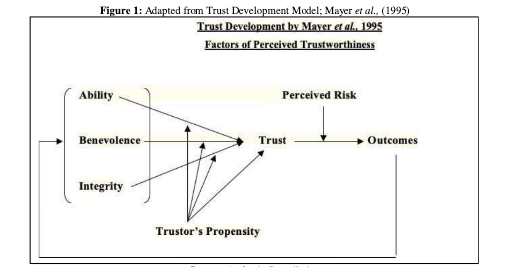I sat with my best friend when he looked over at me, quizzical. “Why do you say different things to different people?” I looked back at him, equally as curious as he was in wanting to know my response. He clarified, “You told your uncle so confidently about your plan after you graduate, like you know exactly what you’re going to do. Then you tell me you have no idea what your plan after graduation is, like you’re so uncertain.” I nodded my head, unsure of what to say. He continued, “Then you tell me everything that bothers you about your roommate with some strong opinions. Do you tell them you feel that way about how they leave the kitchen a mess?”
I know I can’t be alone in this situation. Lots of people say certain things to different people, depending on the connection with the person and the subject. Levels of trust have to be built in order to share more.
I told my friend, “Some people don’t need to know everything about me. I tell them what they need to know. My uncle only needs to know the surface of my life because that’s all he was asking for, nothing more. And some people already value what I do have to say. Like my roommate has shown me that they appreciate what I’ve already said about our room. It hasn’t been a mess in over a week! I feel like I can now share about the kitchen problem, too.”
These are people in my life that I have created bonds with because of circumstances in life I couldn’t control. They aren’t getting paid to build trust with me, they choose to do that. What my friend doesn’t know is that I tell my therapist more than I tell him. It was difficult at first because that is someone who gets paid to listen to me, there’s a wall of obligation obstructing my trust.
The National Library of Medicine (NLM) conducted research on how to measure trust. They define trust as being “fundamentally an attitude and not a behavior.”
Trust is imperative in any relationship, but it is essential in any form of healthcare. Clinicians are meant to be a safe place where people can feel cared about. An article by Alias Behavioral Health talks all about how trust is beneficial for patients and for the workplace.
“When clinicians express genuine understanding and compassion towards patients, it creates an environment of openness and safety. This emotional connection encourages patients to share personal experiences and feelings, which is essential for effective treatment outcomes,” Alias said.
That is the connection between provider and patient. What about the people who don’t work with the patients? The people who help run the organization. Do they need to know everything?
Trust among co-workers, managers, CEOs, and all the connections between has a linear correlation. The stronger the trust is among employees, the better the organization runs as well as the more the workforce turns into “an optimistic experience,” as said by ResearchGate. The more trust is created, the more an employee can perform.

When people are shown they are cared about and their opinions are valued, trust is formed, thus propelling their abilities in the work environment. Same as the connection with clinician and patient, having their voice be heard in a safe environment shows that they are cared for.
Not only does the fact that people’s voices can be heard matter, but so does the reaction to the feedback.
In the book Candid; the Psychology of Feedback, the authors stress how important feedback is to non-profit organizations. Recipients of feedback need to have a balance of having thick skin and a soft heart when it comes to feedback.
“The goal of feedback is to improve the work, not tear you down,” the book says. “You don’t have to agree with everything, but you also don’t have to let it wreck you.”
Giving someone a reason to trust their voice matters will encourage them to continue giving their voice. Trust is a two-way street that has to be earned.
If you’re unsure of how to build trust within your organization, we here at Pulse For Good can help you start! Contact us or visit our website for more information and schedule a demo with us. Also check out our new book Candid that offers more insight on how feedback is important!


